10 Best Herbal Tinctures For Ringworm

Herbal tinctures have gained popularity as natural remedies for treating ringworm, a fungal infection of the skin.
These tinctures are typically made by steeping organic herbs such as garlic, echinacea, calendula, or tea tree oil in alcohol or glycerin to extract their active compounds. They work by delivering antifungal and antimicrobial properties directly to the affected area, helping to reduce fungal growth and soothe inflammation. While they may be less potent than prescription medications, many people find them effective when used consistently.
It is important to consult a healthcare professional before using herbal tinctures, especially if the infection is severe or persistent.
Table of Contents
- 1. St. john's wort (Hypericum perforatum)
- 2. Echinacea (Echinacea purpurea)
- 3. Blessed thistle (Cnicus benedictus)
- 4. Stinging nettle (Urtica dioica)
- 5. Aloe vera (Aloe barbadensis)
- 6. English lavender (Lavandula angustifolia)
- 7. Dandelion (Taraxacum officinale)
- 8. Thyme (Thymus vulgaris)
- 9. German chamomile (Chamomilla recutita)
- 10. Polium germander (Teucrium polium)
1. St. john's wort (Hypericum perforatum)

Hypericum perforatum, commonly known as St. John's Wort, is a herbal plant that has been traditionally used for its medicinal properties, including its potential antifungal effects.
While it is more widely recognized for its use in treating mild depression, some studies suggest that its compounds, such as hypericin and hyperforin, may have antifungal properties that could be beneficial in treating fungal infections like ringworm. Hypericum perforatum herbal tinctures are typically prepared by soaking the dried plant material in alcohol, which helps extract the active components for topical application. These tinctures may be used as a complementary treatment for ringworm, though they should not replace conventional antifungal medications without consulting a healthcare professional.
It is important to note that St. John's Wort can interact with certain medications, so caution is advised when using it alongside other treatments.
2. Echinacea (Echinacea purpurea)

Echinacea purpurea herbal tinctures are commonly used in alternative medicine for their potential antimicrobial and anti-inflammatory properties.
While primarily known for supporting immune health, some studies suggest that echinacea may help in combating fungal infections like ringworm due to its ability to inhibit fungal growth. When applied topically, echinacea tinctures may help reduce the symptoms of ringworm by soothing the affected skin and promoting healing. However, it is important to note that echinacea tinctures are not a substitute for conventional antifungal treatments and should be used under the guidance of a healthcare professional.
As with any herbal remedy, individual responses can vary, and it is essential to consult a doctor before using echinacea for ringworm, especially if you have allergies or are taking other medications.
3. Blessed thistle (Cnicus benedictus)

Cnicus benedictus, also known as blessed thistle, is a herb traditionally used in herbal medicine for its potential antifungal properties.
Herbal tinctures made from Cnicus benedictus are sometimes recommended for treating ringworm due to their ability to support the body's natural defenses against fungal infections. These tinctures are typically prepared by soaking the dried herb in alcohol to extract its active compounds, which may include flavonoids and mucilage. While some studies suggest that blessed thistle may have antifungal effects, more research is needed to confirm its efficacy for ringworm specifically.
As with any herbal remedy, it is advisable to consult a healthcare professional before use, especially if you are on other medications or have underlying health conditions.
4. Stinging nettle (Urtica dioica)

Urtica dioica, commonly known as stinging nettle, is a plant that has been traditionally used in herbal medicine for its various health benefits.
Urtica dioica herbal tinctures are concentrated extracts made by soaking the dried plant material in alcohol, which helps to preserve and extract the active compounds. These tinctures may be used topically for skin conditions such as ringworm due to their anti-inflammatory and antifungal properties. While some studies suggest that nettle may have antifungal effects, it is important to consult with a healthcare professional before using it for fungal infections.
As with any herbal remedy, individual responses can vary, and it should not replace conventional medical treatments without professional guidance.
5. Aloe vera (Aloe barbadensis)
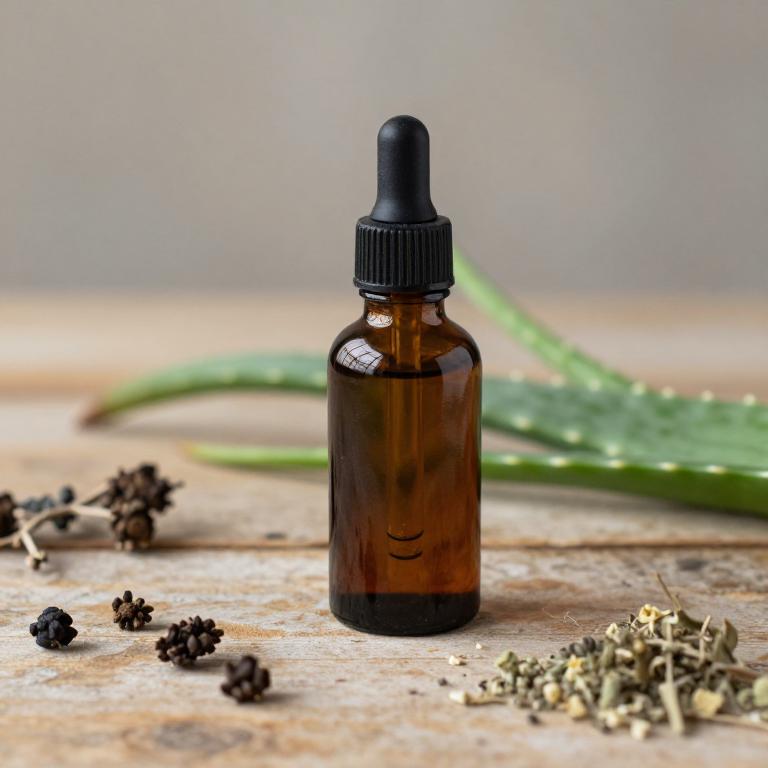
Aloe barbadensis, commonly known as aloe vera, is often used in herbal tinctures for its soothing and healing properties.
These tinctures may be formulated with aloe vera combined with other antifungal herbs such as tea tree oil or garlic to enhance their effectiveness against ringworm, a fungal skin infection. The antifungal compounds in aloe vera can help reduce inflammation, promote skin regeneration, and inhibit the growth of the fungus responsible for ringworm. While some people may find relief using aloe-based tinctures, it is important to consult a healthcare professional for proper diagnosis and treatment, especially if the infection persists or worsens.
As with any herbal remedy, the safety and efficacy of aloe barbadensis tinctures can vary, and they should not replace conventional medical treatments without guidance.
6. English lavender (Lavandula angustifolia)
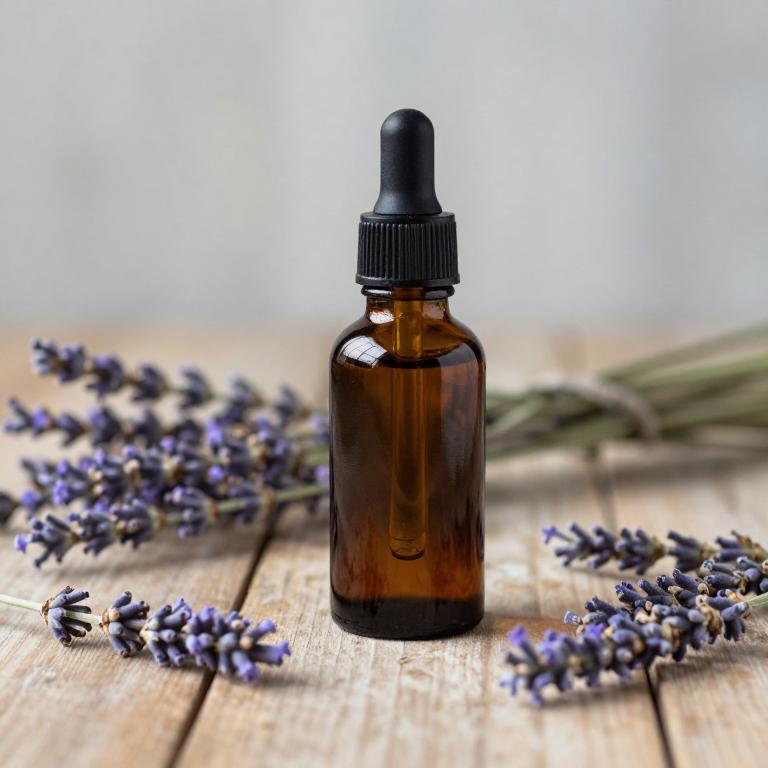
Lavandula angustifolia, commonly known as English lavender, is often used in herbal tinctures for its antifungal and soothing properties.
These tinctures are typically made by steeping dried lavender flowers in alcohol, creating a concentrated extract that can be applied topically. Lavender tinctures are believed to help combat ringworm by inhibiting the growth of fungi due to their essential oil content, including compounds like linalool and linalyl acetate. While they may offer some relief from the symptoms of ringworm, they should not replace conventional medical treatments.
It is important to consult a healthcare professional before using lavender tinctures, especially for severe or persistent fungal infections.
7. Dandelion (Taraxacum officinale)
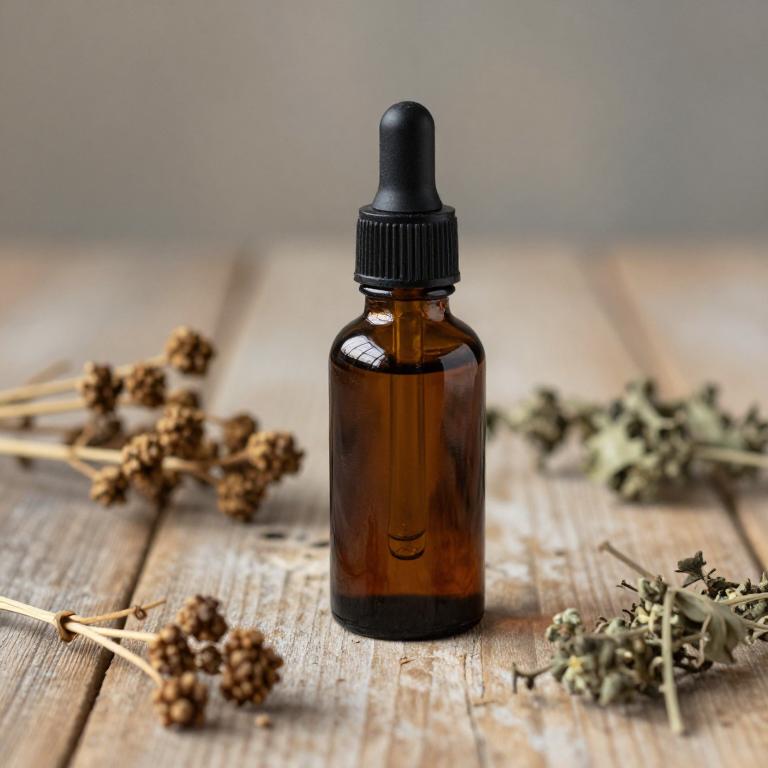
Taraxacum officinale, commonly known as dandelion, has been traditionally used in herbal medicine for its potential antifungal properties.
Tinctures made from the roots and leaves of this plant are sometimes utilized as a natural remedy for fungal infections like ringworm. The active compounds in dandelion, such as sesquiterpene lactones and flavonoids, may help inhibit the growth of fungi by disrupting their cell membranes. While some anecdotal evidence suggests its efficacy, scientific research on its effectiveness against ringworm is limited.
It is important to consult a healthcare professional before using dandelion tinctures, as they may interact with other medications or cause allergic reactions in some individuals.
8. Thyme (Thymus vulgaris)

Thymus vulgaris, commonly known as thyme, is a herb that has been traditionally used for its antimicrobial and antifungal properties, making it a potential natural remedy for ringworm.
Thymus vulgaris herbal tinctures are often prepared by soaking the dried herb in alcohol to extract its active compounds, such as thymol and carvacrol, which have demonstrated efficacy against fungal infections. These tinctures may be applied topically to the affected skin areas to help reduce the symptoms of ringworm, such as itching and redness. While some studies suggest that thyme-based treatments can be effective, they should not replace conventional antifungal medications without consulting a healthcare professional.
As with any herbal remedy, it is important to ensure proper dilution and to monitor for any allergic reactions or skin irritation.
9. German chamomile (Chamomilla recutita)
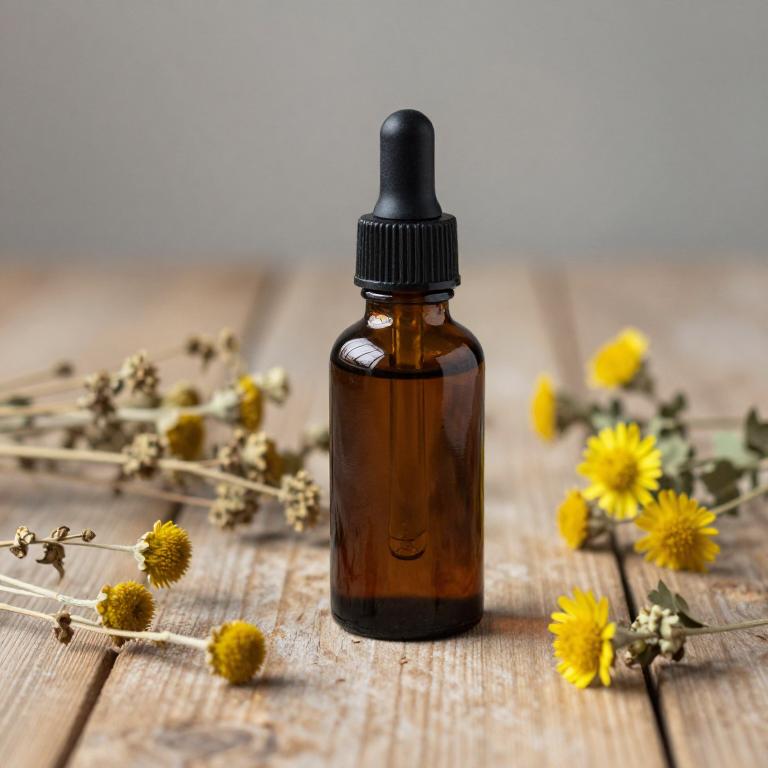
Chamomilla recutita, commonly known as German chamomile, is often used in herbal tinctures for its anti-inflammatory and antifungal properties.
These tinctures are traditionally applied topically to treat skin conditions like ringworm, which is caused by fungal infections. The active compounds in chamomile, such as chamazulene and bisabolol, help reduce redness, itching, and irritation associated with fungal infections. While chamomile tinctures may offer some relief, they are not a substitute for medical treatment and should be used alongside prescribed antifungal medications.
It is important to consult a healthcare provider before using any herbal remedy, especially if you have a known allergy to plants in the daisy family.
10. Polium germander (Teucrium polium)
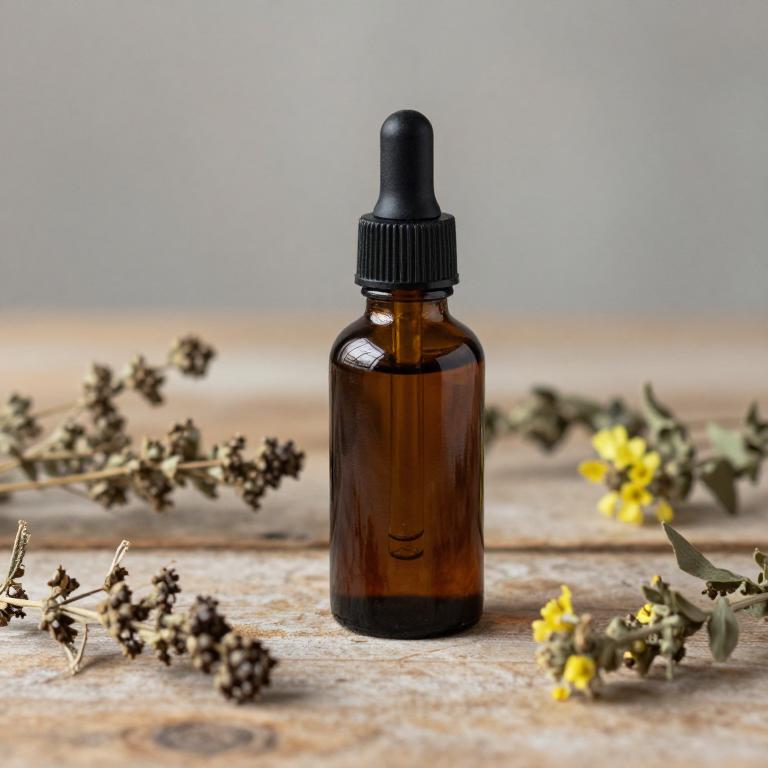
Teucrium polium, commonly known as the "wallflower" or "Greek tea," has been traditionally used in herbal medicine for its antimicrobial and antifungal properties.
Herbal tinctures made from Teucrium polium are believed to help combat fungal infections such as ringworm due to their ability to inhibit the growth of dermatophytes. These tinctures are typically prepared by soaking the dried leaves and flowers in alcohol to extract their active compounds. When applied topically, they may help reduce the symptoms of ringworm, including itching and redness, by targeting the fungal infection at the skin level.
However, it is important to consult a healthcare professional before using Teucrium polium tinctures, especially for prolonged or severe cases of ringworm.